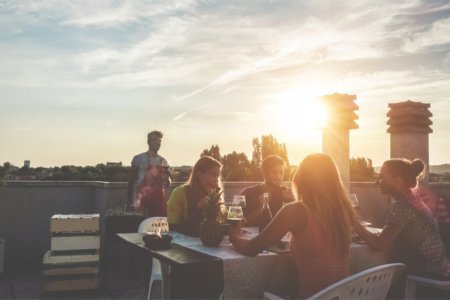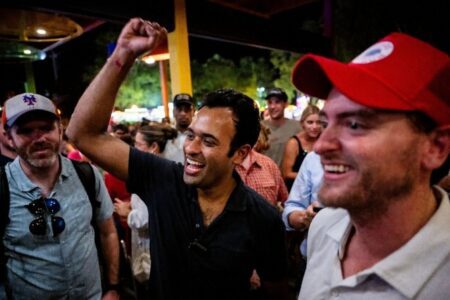
When people think of studying abroad, they usually envision the freedom to sightsee, travel, and experience life abroad — and that includes enjoying the nightlife.
And if your study abroad destination is known for its great nightclubs, bars, cultural events or festivals, it’s all the more reason to check them out.
After all, you’re on your own, you’re an adult and your parents aren’t around to stop you. This is your first big taste of freedom – nothing’s going to stop you from letting loose, right?
Wrong.
If there’s something that you have to consider before partying and drinking the night away, it would be the legal drinking age of the country you’re studying in.
What may be legal in your home country may not be the standard in your new country, and that can make or break your nightlife experience — including getting you deported.
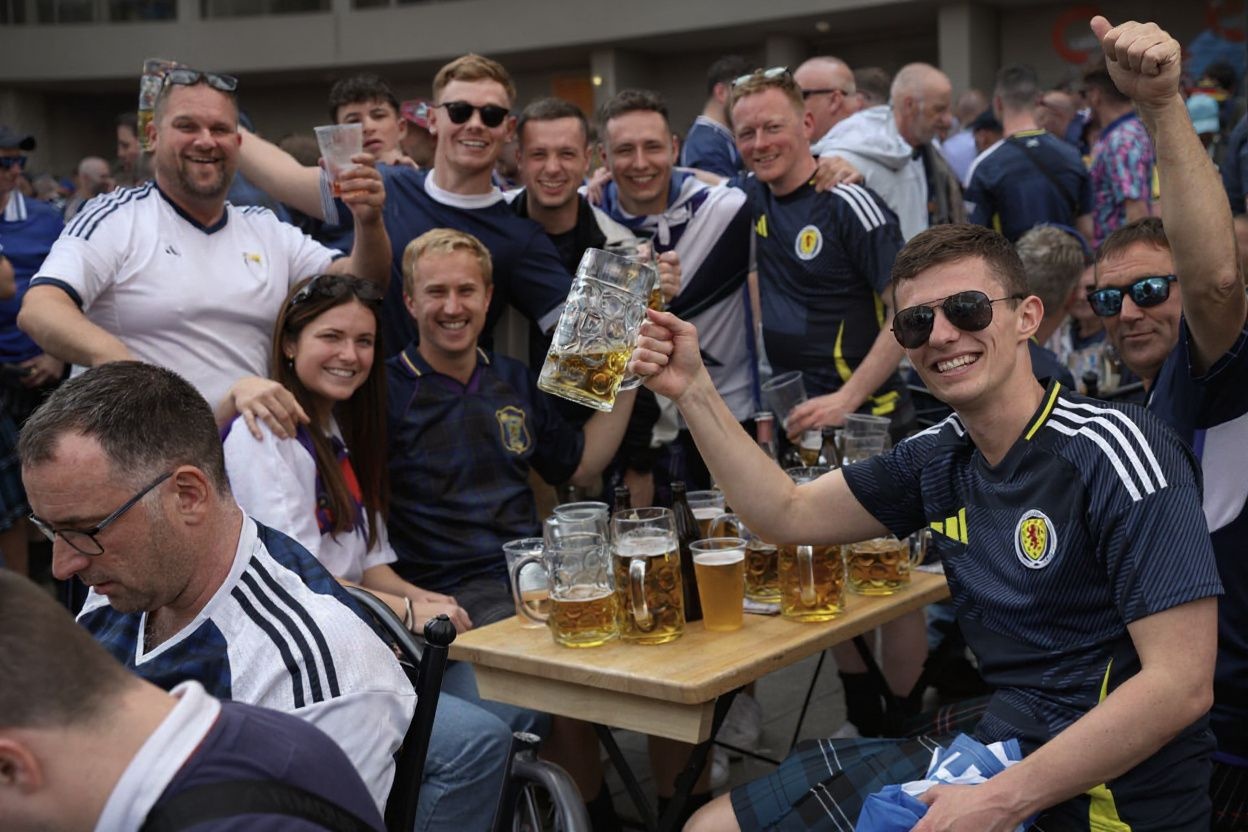 If you’re a sports enthusiast, chances are that you may enjoy drinking with fellow fans at any sports events.
If you’re a sports enthusiast, chances are that you may enjoy drinking with fellow fans at any sports events.
The legal drinking age for popular study abroad destinations
Some places will outright refuse to serve you if you do not have a valid form of identification, so make sure to carry some form of it around. Your personal identity card, passport, or student ID will suffice to enter certain establishments or purchase alcohol.
It also goes without saying that some younger students may use fake IDs to enter clubs or bars.
Here’s where we remind you that forging government documents will certainly land you in trouble – you could face conviction or, even worse, be suspended or expelled from university. So tread carefully!
The UK
The legal drinking age in the UK is 18. Not only is it illegal to purchase alcohol while you’re underage, but it’s also against the law for someone to sell it to you. If you’re thinking of getting an older friend to buy it for you, think again, as it’s also an offence.
On the bright side, if you’re 16-17 and accompanied by an adult, you can drink beer, wine, or cider with a meal. You’ll still be unable to purchase it or take it off the premises, but it’s better than nothing.
If you’re under 18 and are caught drinking alcohol in public, you can actually be stopped and fined – or worse, arrested by police. On top of that, they will also confiscate any alcohol you have on your person.
The US
According to the 1984 National Minimum Drinking Age Act, the legal drinking age in the US is 21. Before 1984, each state had its own legal drinking age.
Most state laws will require you to show identification to purchase alcohol, and there are some exceptions despite the minimum age being 21. In some states, an individual under 21 may drink with their parent’s permission, but only on private residence or property. At the same time, six states allow those under 21 to drink on private property without needing their parents’ consent.
Read the full list here, and always make sure to check the laws of the state you’re studying in. Underage drinking is considered a misdemeanour criminal offence, and conviction may include a fine, community service, revoking your driver’s license, and/or even mandatory alcohol counselling or classes.
Canada
The legal drinking age in Canada is 19 in most provinces but 18 in Alberta, Manitoba, and Quebec.
In some cases, underage drinking is permitted under parental supervision at home, but it does not allow drinking for the other minors who are guests in the said home. Why? Canada believes that educating and teaching young adults to drink responsibly will result in fewer addiction or dependence problems as they grow older.
If a minor is caught possessing alcohol in public or at establishments, they can potentially be fined up to US$230. The same goes for those attempting to buy alcohol with a false ID, so this is, once again, a reminder to not do that.
 If you’re planning to hang out and drink with friends, remember to check out the correct times to purchase alcohol in Mexico.
If you’re planning to hang out and drink with friends, remember to check out the correct times to purchase alcohol in Mexico.
Mexico
The legal drinking age in Mexico is 18 years old. Even though the age limit is lower than in other countries, some states limit alcohol purchases to certain times of the day.
For example, you will not be able to purchase packaged alcohol after 11 p.m. in Cancún from shops or convenience stores. Bars and clubs usually have special permits to sell alcoholic drinks later than that, so as long as you have a valid ID to enter, you can still enjoy a late-night drink or two.
In some border cities, you cannot purchase alcohol after 3 p.m. on Sundays up till a.m. on Mondays. That’s certainly one way to ensure you’re sobered up for the start of the week.
Penalties for underage drinking include fines, community service, or even imprisonment in some cases. Drinking and driving, in particular, may result in more than just a hefty fine – your license will be revoked, and you may face imprisonment for up to 36 hours. In addition, if you have a prior conviction for drunk driving within the last ten years, you may be denied entry to Mexico.
Australia
The legal drinking age in Australia is 18 years old. It is against the law for an underaged individual to buy alcohol or to enter a place where alcohol is served, like a pub, bar or club – even worse if you’re using a fake ID.
Both establishments and police have the right to ask for identification, and offenders can either face a penalty or fine or have the issue brought straight to court. It’s also against the law to have or drink alcohol in a public place like parks, shopping malls, public transport, and places that do not sell alcohol in general.
A minor must not obtain, consume or carry alcohol away from any establishment. If caught, fines range between US$220 and US$2200. If you’re an adult supplying alcohol to minors, you may face either a US$1100 penalty on the spot, or the courts can impose fines of up to $11,000 and/or 12 months imprisonment.
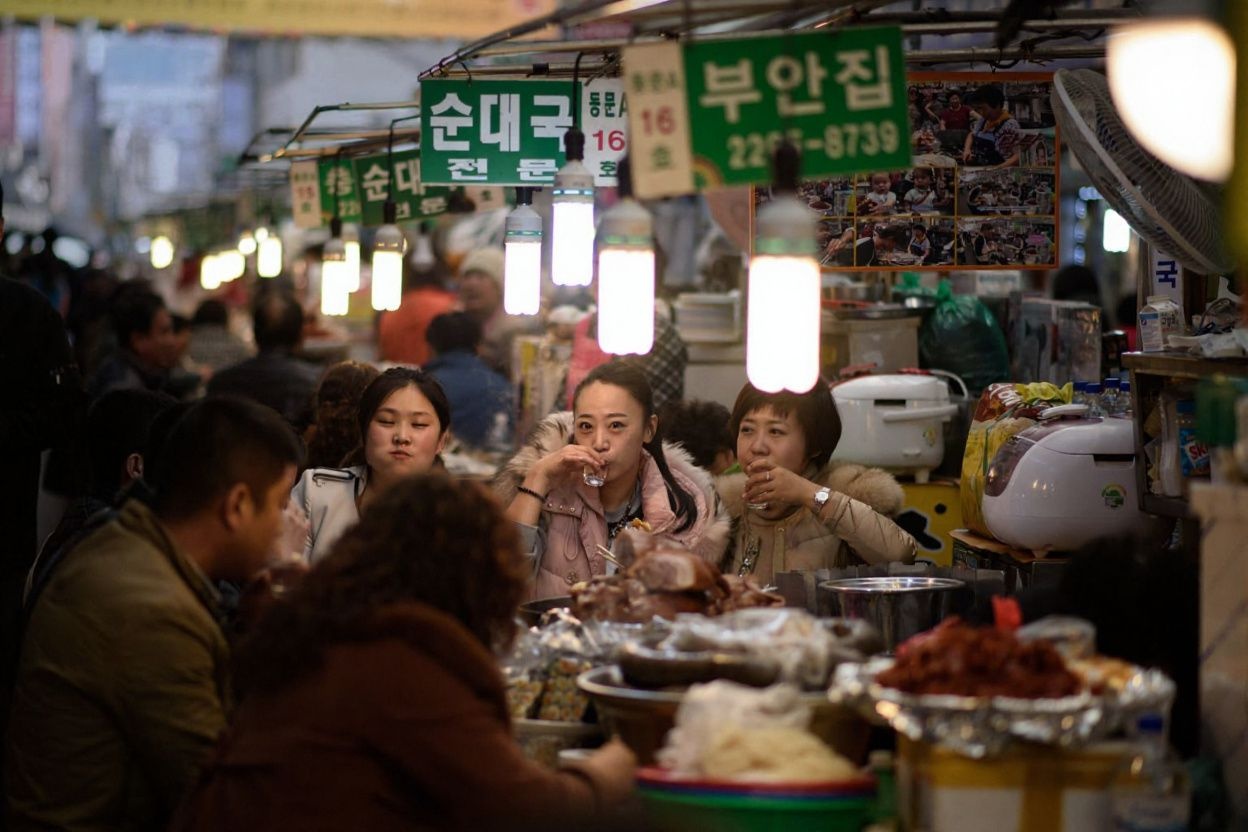 If you’ve watched a Korean drama or two, chances are that you’ve seen characters repeatedly down variations of soju.
If you’ve watched a Korean drama or two, chances are that you’ve seen characters repeatedly down variations of soju.
South Korea
The legal drinking age in Korea is 19, and minors are not allowed to consume alcohol even with their parent’s consent. Yes, even if it’s at home.
Korean universities, in particular, have a pretty famous drinking culture. Students are quite comfortable consuming alcohol in public. Expect to see soju, beer, and makgeolli often at occasions like orientation parties, celebrations, or post-exam meals, coupled with a variety of drinking games. Some may even say that Korean students use alcohol as a way to grow closer to one another.
Curiously, South Korea only punishes those who sell alcohol to minors, rather than the underaged drinkers themselves. This includes cases where minors would trick establishment owners, using the law as an excuse to threaten those who unwittingly sell them drinks. Officially, the Juvenile Protection Act states that anyone who provides alcohol to a minor shall be punished by up to two years in prison or face a fine of up to US$15,400.
Germany
Perhaps some may rejoice at this – the legal drinking age in Germany is only 16 years old. If you’re 16 and older, you can purchase and consume beer and wine, but for spirits, you’ll have to be 18.
Drinking laws are a little more lax here as compared to other countries. In Germany, those aged 14 and above are allowed to consume beer, wine, or cider if supervised by a parent or legal guardian.
Curiously, just next door, Denmark allows those aged 16 and 17 to purchase any alcohol as long as it has an alcohol content below 16.5%. Surprisingly, underage drinking in private is not regulated by any specific legal restriction in Germany.
Of course, this has been met with some backlash.
“It makes no sense that young people aged 14 to 16 are allowed to consume alcohol in bars or restaurants if a person with parental responsibility accompanies them,” said Bavarian Health Minister Judith Gerlach.
 Anything can happen on a dark street in a crowd.
Anything can happen on a dark street in a crowd.
The risks that come with alcohol consumption
It goes without saying that overdrinking results in massive issues. In fact, alcohol is the most common drug consumed by people younger than 21 in the US, and about 4,000 young adults die from excessive alcohol use each year.
Of course, there is also the danger of developing health conditions or experiencing social, academic, and even legal issues – all of which pose great risks for international students.
As much as some of you may feel the urge to party until dawn, you’re actually putting yourself – and your health – at risk.
A downward spiral
Staying out late to drink often will lead to bad sleeping habits, terrible mental health, and overall threaten your academics. Combining too much alcohol and too little sleep will lead to alcohol inflammation, which will put you at risk for gastrointestinal, cardiovascular, autoimmune, metabolic, and neurological diseases.
Even if you don’t feel it immediately, it will eventually take a toll on you, and your body – and the people around you – will start paying for the repercussions. Your grades will suffer, and so will your study abroad experience as a whole. So drink responsibly, don’t bow to peer pressure, and know your limits. It can potentially save your life.
“send me the picture we took last night”
the photo : pic.twitter.com/2936jUS1dy
— ☔ (@Whotfismick) July 16, 2024
Alcohol poisoning
Each year, thousands of students end up in the emergency room because of alcohol poisoning. Consuming too much alcohol will affect your central nervous system and slow down your heart rate. That’s how people end up passing out.
And even after passing out, blood alcohol levels can still rise to the point where it could cause a seizure. By then, it’ll be a medical emergency, as it can lead to severe brain damage or even death.
Dwindling finances
Drinking is expensive for international students. Like really, really, expensive.
If you happen to be studying in a country that has cheap alcohol – like Thailand or Myanmar – then that’s great for you. But if it’s the opposite, it’s easy to flush out your savings with just a night out or two.
Some clubs and bars require a minimum of a few hundred dollars just to get a table, and some charge entrance fees right at the door. If you can afford to skip out on the nightlife, getting together at a friend’s place and drinking packaged alcohol will save you a couple of bucks.
@shiraah Spreading awareness one Tik Tok at a time #drinkspikingprevention #safety #candy #spiked ♬ original sound – sped up songs <3
Personal safety
Realistically, you’re a young adult in a foreign country – you will never be 100% safe as long as you venture out for a drink. Many things can happen when you’re intoxicated and incapable of making sound decisions, such as being drugged against your knowledge, sexually harassed, abducted or even raped and murdered.
Most of us are familiar with the age-old concept of spiked drinks. But in recent years, perpetrators have grown even bolder – women and university students have reported “needle spiking,” where they experienced a painful prick before blacking out.
Over two-thirds of women who regularly hang out at nightclubs, bars, or pubs are victims of sexual harassment and violence. It’s not a gender debate either – an estimated 190 men were drugged and raped in 2020 by Reynhard Sinaga, a then-postgraduate student.
Regardless of company, dress or appearance, no one is absolutely safe. Always stick around people you can trust, and keep an eye on your surroundings.
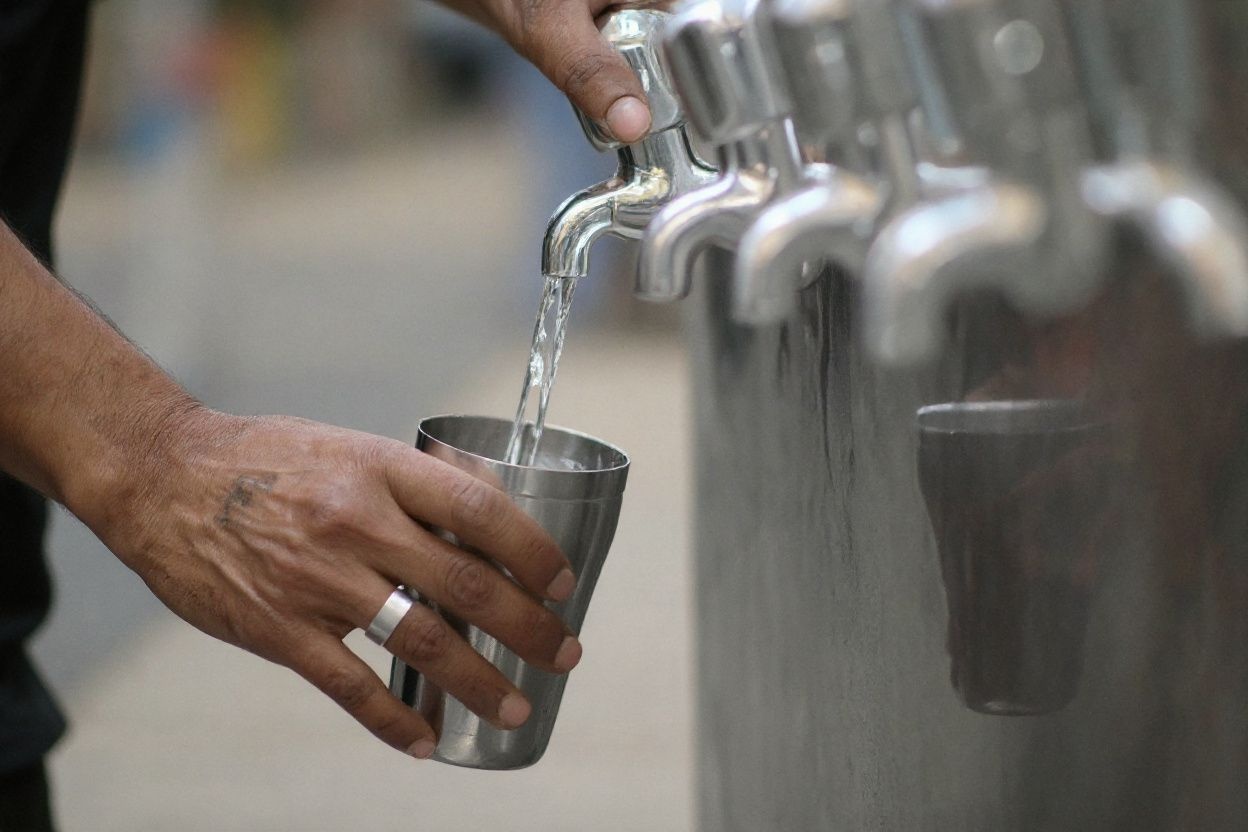 And don’t tell us that alcohol has water. We’re not buying into that.
And don’t tell us that alcohol has water. We’re not buying into that.
Our best tip – water is your best friend
We cannot stress this enough – have enough water while you’re out drinking. This tip alone can save you from having your head in a grimy toilet bowl at the back of the bar.
It’s a popular tip to stay sober or at least to water down your alcohol intake. Drink water in between shots or cups of water. It’s called the 1-for-1 rule, and you’ll be grateful when this tip helps you avoid that hangover the next day.
If you’re not the type to drag around a large water bottle or carry around a clinky Stanley cup, there are places that offer water for free.
In some countries, like Australia and Europe, it’s mandated by law that water must be provided at every establishment, either for free or at a reasonable cost. Places that sell liquor, such as hotels, nightclubs, bars, and casinos, must ensure that free drinking water is available at all hours. If alcohol is not available for purchase at certain hours, then these establishments may still charge a fee for water.
However, this varies in the area you’re in, so make sure to clarify with the establishment you’re visiting. Luckily, some bartenders are nice enough to provide water for free upon request, so all you have to do is ask.








